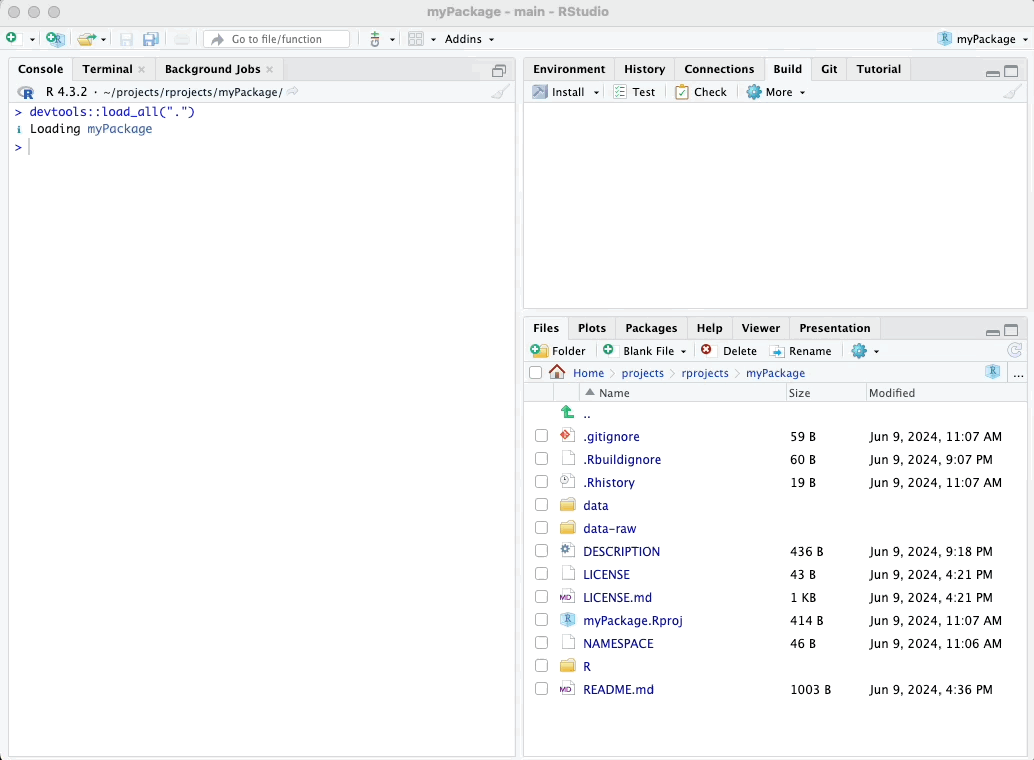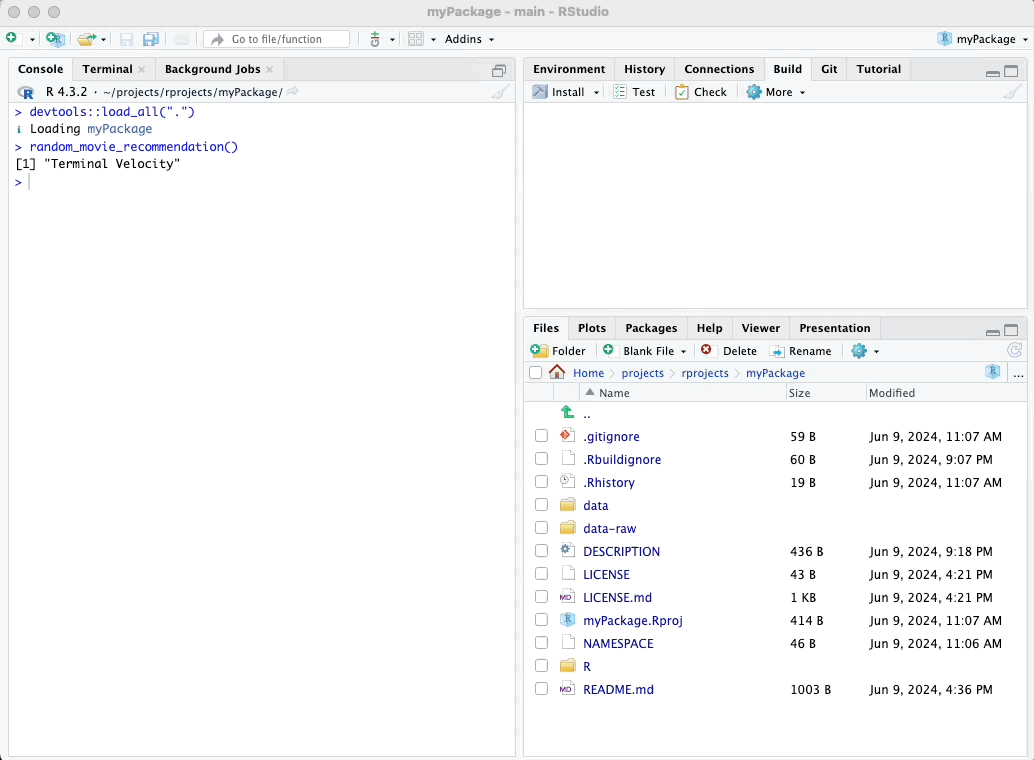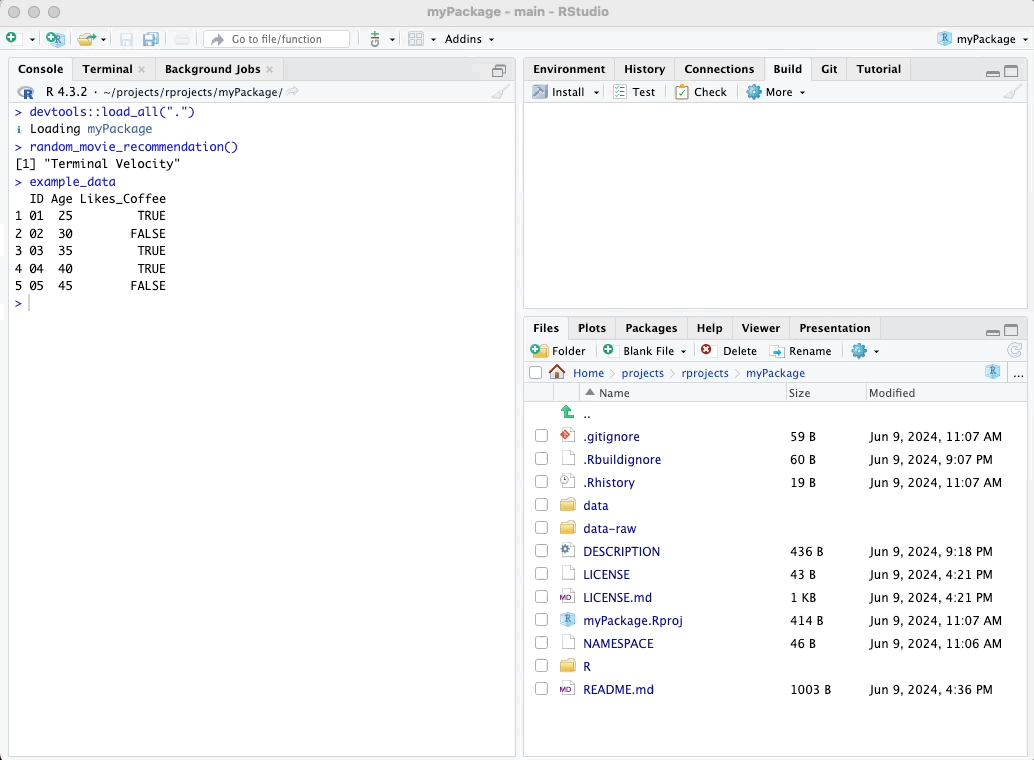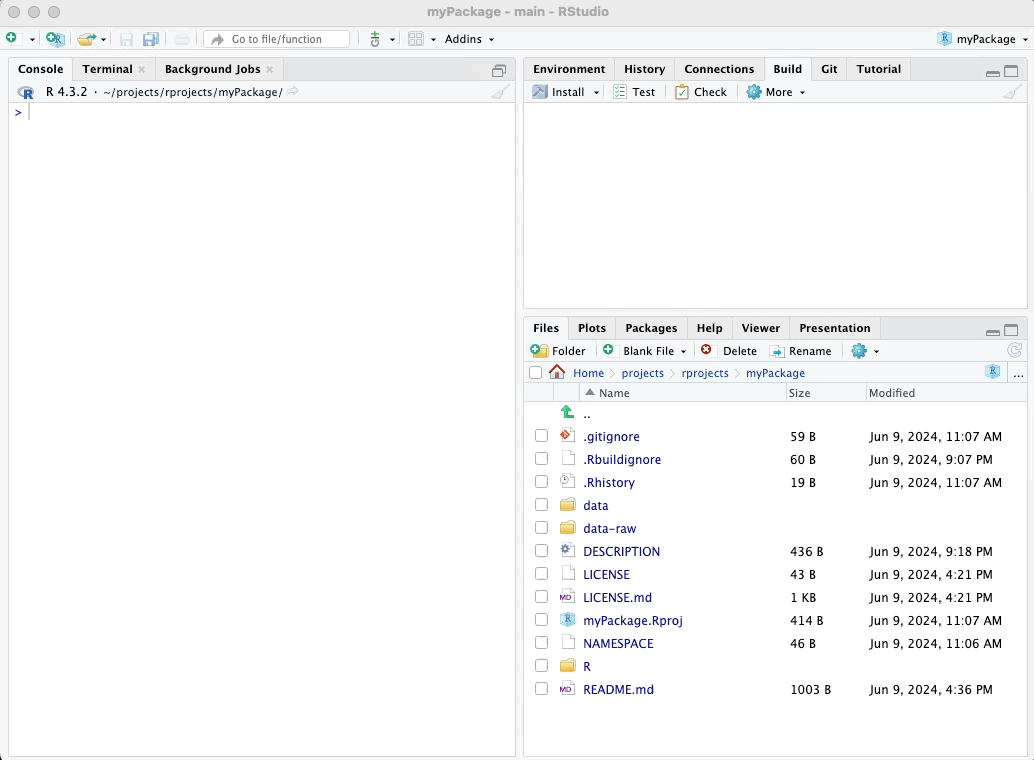10 Testing Functions
In this chapter, we’ll focus on testing the functions and example data we have incorporated into our package. Ensuring that everything works as expected is a crucial step in package development.
10.1 Loading the Package
Before testing, we need to load our package. We can do this using the
devtools::load_all() function, or alternatively, by clicking the “Load
All” button in the top-right pane of RStudio.
10.2 Testing the Functions
Once the package is loaded, we can start testing our functions to ensure they work as expected.
10.2.1 Testing random_movie_recommendation
To test the random_movie_recommendation function, simply call it in
the R console:
You should see a random movie title from the ggplot2movies dataset. See visual guide below:

10.2.2 Verifying the Example Data
We can also verify that our example data has been correctly incorporated by simply viewing it:
This should display the dataset we created earlier. See visual guide below:

10.2.3 Testing calculate_group_mean
To test the calculate_group_mean function, call it with the example_data dataset:
This should return the mean age of the group who likes coffee (denoted
by the Likes_Coffee variable). See visual guide below:

In the next section, we will document our functions and example data properly.
Creating
R Packages: A Step-by-Step Guide by
Ville
Langén is licensed under
CC
BY-SA
4.0
